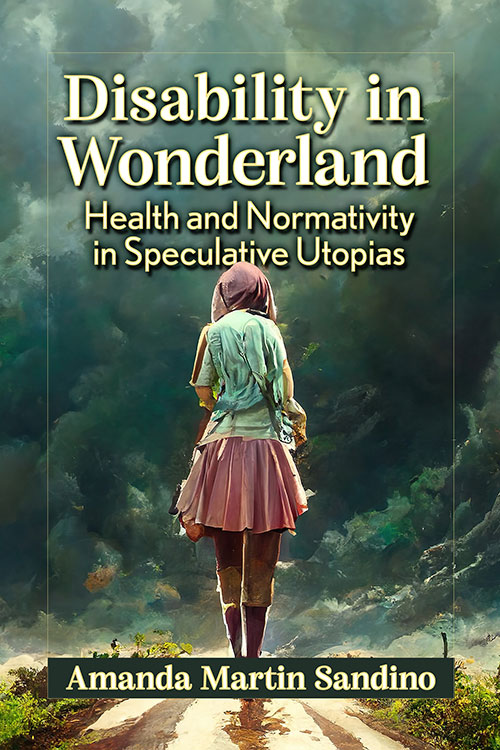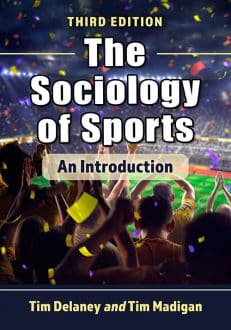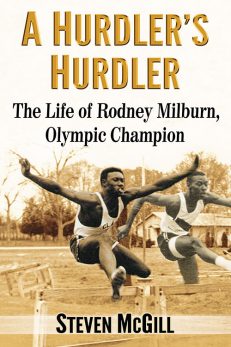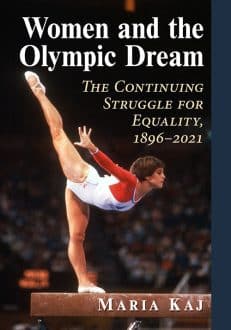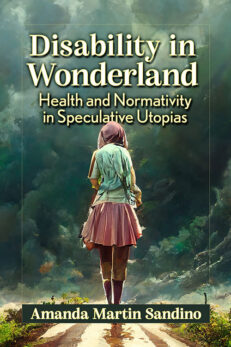Disability in Wonderland
Health and Normativity in Speculative Utopias
$39.95
In stock
About the Book
Adult-directed utopian fiction has historically rejected depictions of persons with disabilities, underrepresenting a community that comprises an estimated 15% of the world’s population. From the earliest stories of utopias written for and about children, however, persons with disabilities have been included in abundance, and are central to classic narratives like The Wizard of Oz and Winnie the Pooh. In a perfect world centered on children and their caretakers, these works argue, characters with a diverse range of bodies and minds must flourish. Spanning from Lewis Carroll’s 1865 Alice in Wonderland to Jordan Peele’s 2019 film Us, this examination of the wonderland demonstrates the role that bodily and neurological diversity plays in an ever-popular subgenre.
About the Author(s)
Bibliographic Details
Amanda Martin Sandino
Format: softcover (6 x 9)
Pages: 200
Bibliographic Info: notes, bibliography, index
Copyright Date: 2023
pISBN: 978-1-4766-8303-4
eISBN: 978-1-4766-5020-3
Imprint: McFarland
Table of Contents
Preface 1
Introduction 11
Chapter 1
Crip Futurity and Literary Utopias 33
Chapter 2
Finding Criptopia in Baum’s Oz Series 69
Chapter 3
Middle Era Wonderlands: A Turn to the Dark Side 94
Chapter 4
Alienation and Charlie and the Chocolate Factory 105
Chapter 5
Nostalgia, Fan Fiction, and the Wayward Children Series 117
Chapter 6
The Underland and the Rejection of the Medical Model of Disability 137
Chapter 7
Alice in the Underland 157
Conclusions 170
Chapter Notes 175
Works Cited 177
Index 191

